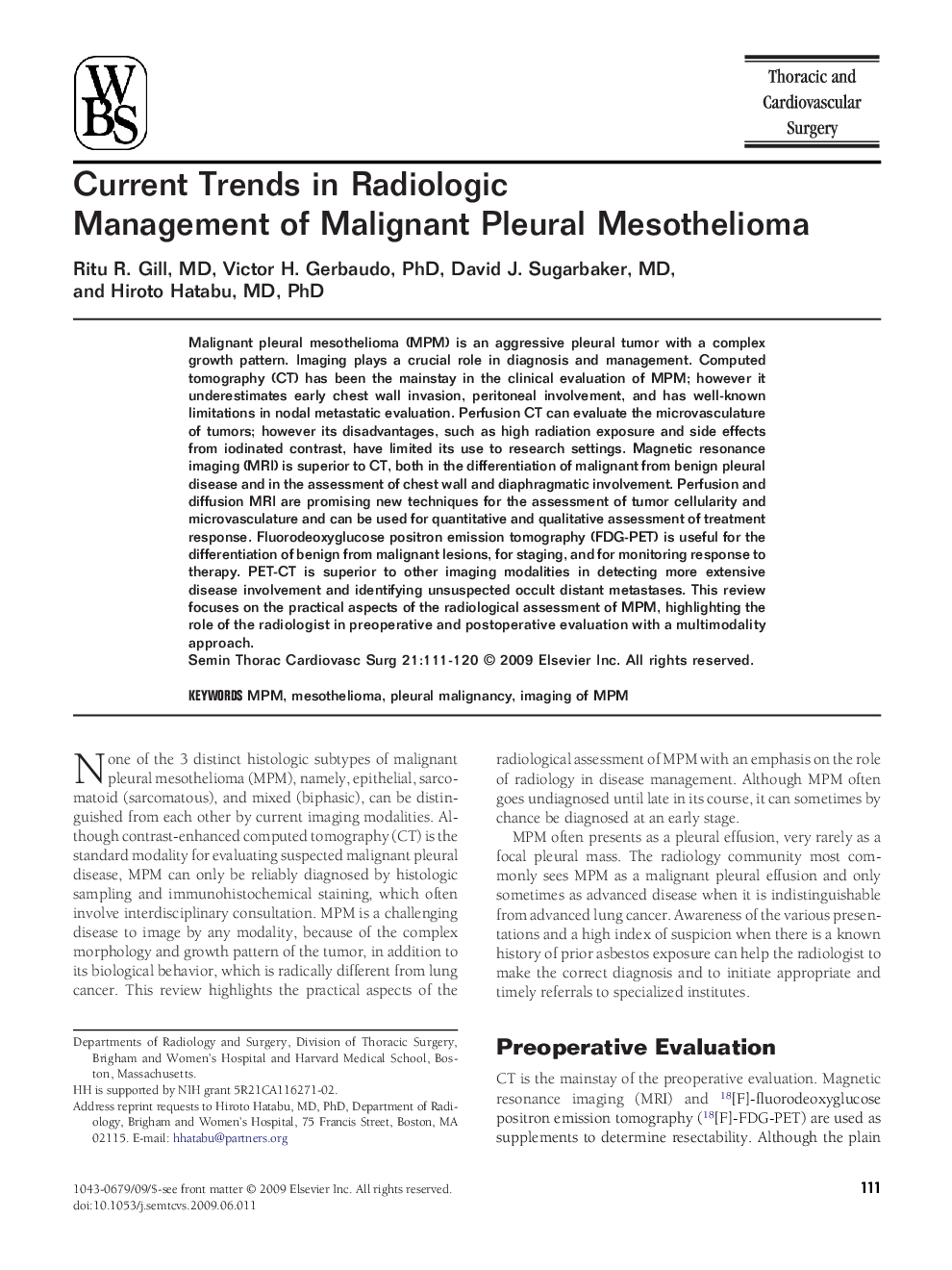| Article ID | Journal | Published Year | Pages | File Type |
|---|---|---|---|---|
| 3025291 | Seminars in Thoracic and Cardiovascular Surgery | 2009 | 10 Pages |
Malignant pleural mesothelioma (MPM) is an aggressive pleural tumor with a complex growth pattern. Imaging plays a crucial role in diagnosis and management. Computed tomography (CT) has been the mainstay in the clinical evaluation of MPM; however it underestimates early chest wall invasion, peritoneal involvement, and has well-known limitations in nodal metastatic evaluation. Perfusion CT can evaluate the microvasculature of tumors; however its disadvantages, such as high radiation exposure and side effects from iodinated contrast, have limited its use to research settings. Magnetic resonance imaging (MRI) is superior to CT, both in the differentiation of malignant from benign pleural disease and in the assessment of chest wall and diaphragmatic involvement. Perfusion and diffusion MRI are promising new techniques for the assessment of tumor cellularity and microvasculature and can be used for quantitative and qualitative assessment of treatment response. Fluorodeoxyglucose positron emission tomography (FDG-PET) is useful for the differentiation of benign from malignant lesions, for staging, and for monitoring response to therapy. PET-CT is superior to other imaging modalities in detecting more extensive disease involvement and identifying unsuspected occult distant metastases. This review focuses on the practical aspects of the radiological assessment of MPM, highlighting the role of the radiologist in preoperative and postoperative evaluation with a multimodality approach.
